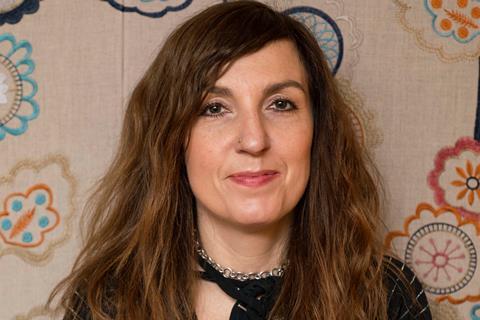
Mia Bays, director of the BFI Filmmaking Fund, is extending her contract to October 2026, after initially taking up the post for three years.
“Change takes time, film is slow to evolve,” said Bays. “The more I thought about it at the midpoint [of the contract], the more I felt there was more for me to do. The team has changed, it’s all quite recent. You need longer to do the finessing of the evolution. I can still see some gaps. It felt like the right thing, so I proposed it, and the upper echelons of the BFI agreed.”
She does not plan to further extend her contract beyond 2026. “I subscribe to creative renewal,” she confirmed.
During the rest of her tenure, she plans to prioritise “wellbeing and having a human-centred approach” to supporting filmmakers.
“We need to evolve well-being across the whole process, including when the circus leaves town, how that feels and helping filmmakers to know where to go next. It’s all the levers we pull, which aren’t just fiscal.”
Further priorities include reviewing the BFI’s recoupment instrument, the Locked Box, and building upon the Creative Challenge lab programme. A yet-to-be named fund manager has been hired, who will oversee development funding, the Creative Challenge fund and Future Takes, the high-budget shorts collaboration with Film4.
Future Takes will return for a second round, although exact funding amounts have not been set. The first round saw nine shorts receive between £55,000 and £90,000 of National Lottery funding.
A review on the impact of well-being facilitators is also on the cards.
Bays wants to placate the concern of some UK producers that public funders will reduce their contributions in line with the UK’s recently enhanced tax credit for film’s budgeted under £15m, which she said was not the case. She noted: “We just make sure, as much as possible, we spread our money as far as we can. When everyone comes in asking for the max, we make a call on how feasible it is to raise [the rest of the financing], and often we [later] top up.”
She is attending Cannes with three BFI-backed features: Andrea Arnold’s Bird in competition, Sandhya Suri’s Santosh in Un Certain Regard and Karan Kandha’s Sister Midnight, plus four titles in the Great8 showcase: Brides, The Rise And Fall Of Sir Douglas Weatherford, Surviving Earth and On Falling.
“It feels at the moment like a golden age of emerging talent,” she said. “The stories we’re seeing centered and the idea of what a British film looks, feels and smells like, is so different from just a few years ago, especially diasporic voices telling British films and stories, set in India and Nigeria, or as with Surviving Earth, set in the fallout of the Yugoslav war. That multi-cultural dimension is what I find really galvanising and exciting.”
In addition to the Great 8 selection, further titles to come out of the Discovery Fund, which is dedicated to directorial debuts budgeted below £3.5m, include Harry Lighton’s debut Pillion, starring Harry Melling and Alexander Skarsgard, and actor Harris Dickinson’s untitled directorial debut.
Former head of charity Birds’ Eye View (now renamed Reclaim The Frame) Bays took over the job of director of the then-Film Fund in 2021 at a time in which the BFI was iterating a new 10-year strategy. “It was an incredible time to join, but took an enormous amount of focus. Now, we’re experiencing the change, fine-tuning and being very involved in the films in a way I couldn’t before.”

























No comments yet